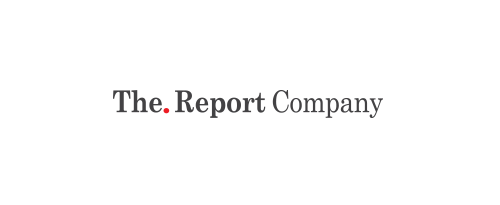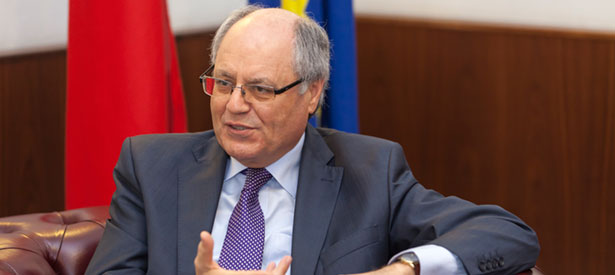While Malta’s neighbours are yet to emerge from financial and economic turmoil, this Mediterranean island state is doing remarkably well for itself. According to European Commission figures, its economy is forecast to grow by over 2 percent in 2014, while its debt-to-GDP ratio is seen at 72 percent – both figures that would turn many a European finance minister green with envy. Professor Edward Scicluna, who has held the office of minister for finance in the country since 2013, met with The Report Company to discuss what’s behind Malta’s success.
The Report Company: What are the main focuses for the ministry today?
Edward Scicluna: Our main focus is financial stability. If you take that away, you get a crisis of the kind the world has experienced. In the past, we were more concerned with inflation and monetary stability but we ignored at our peril financial stability. This is even more important for Malta, because as a small island, even the smallest shock could rattle the economy. We have to be extremely prudent, cautious and more careful than any other country. The crisis came, and we were pleased to note that Malta has got out of it unscathed. None of our banks were tainted, or had any sort of trouble, because they were conservative and prudent, and so was the regulator.
One cause of concern for countries is when they have extremely high debt, which brings in more uncertainty, higher yields on their bonds, and in turn that accelerates towards a sovereign debt crisis. When we came into government, the facts were that we found ourselves in what the European Commission defines as an “excessive deficit procedure”. We had to make a correction within two years. Although the rules could have forced us to implement certain austerity programmes, the last thing we wanted was to break our very slowly growing economy. We convinced the Commission that we would carry out the consolidation our own way, and we did. Throughout the year we had to trim certain areas. For two successive forecasts, the winter and spring of 2013, the EC was still forecasting an excessive deficit for Malta for the end of 2013. We are very pleased to note that in the Winter Forecast for 2014, the EC expect us to finish the year not exceeding the 3 percent.
Everybody is concerned about jobs and growth. Because we have invested in the reforms, we expect them to result in higher growth, higher investment and higher employment. Our rate of economic growth is one of the highest in Europe. It is well over 2 percent for the past, present and coming year. We are, at the moment, reporting the highest rate of growth of employment. It is close to 3 percent and we will maintain that.
Our reforms are now taking place on the energy front, in the labour markets, in trade, in education, and last but not least, in the justice reform. We are attacking the problems on all fronts. We have just started. We’ve been in government just over a year, but we feel we are making progress.
TRC: What has allowed Malta to remain stable and solid while its neighbours have struggled?
ES: It’s a mixture of history and culture. It’s also the fact that we are members of the European Union and the Eurozone which puts us in a more disciplined framework. There’s a culture of a highly disciplined labour force. Education has always been of a high standard, and we have always had political stability. We have the British model of a two-party system and the courts of law. This makes us more attractive for companies to base their operations on the island or operate within the region from Malta.
TRC: What makes Malta attractive as a base to access the greater region?
ES: You can work in North Africa, but base yourself here. People can use Malta as a base, looking at supply or transhipment. We have an enormous transhipment centre. We have good relations with the North African countries. We are Europeans and our religion is Christianity however our language is Semitic and there is the cultural affinity there.
Take the example of Libya. It unfortunately has enormous problems of its own, but it wants life to continue, so they are looking at Malta for certain activities which they want to do for the future. They are training their civil servants in Malta, for example. Another example is the US. The US had wanted so much to set up an International Institute of Justice and the Rule of Law. They want to help the North African countries, like they did the Eastern European countries, and they had the idea of placing this Institute in a North African country, but they asked us when we came to government to place it in Malta temporarily. They have since informed us they intend to stay here permanently because they find that our connections are such that it works better. Whether it’s China, the US or Libya, there are advantages in Malta where it can be used as a base where there is stability and the rule of law. We are very pleased to have that role.
TRC: How would you appraise the relationship with China?
ES: It is a good and warm relationship on many different levels. There is the bond at the personal level of friendship. We have also seen investment in Malta in the past in the sense of infrastructure, roads and so on. But now it’s a new leaf. China is different and so is Malta, but the friendship has remained. The glue is there. We trust each other. We feel at ease with each other, and even though we are so far away, we are ready to do business together. Our relationship will do Malta a lot of good, and China as well. The fact that they have a presence here in this region in a stable country creates a mutual benefit for both of us.
TRC: Where do you see opportunities for collaboration within the financial services sector?
ES: In this area, one need not push hard in a short time, but there will come a natural evolution that once you do business and see what Malta has to offer in the financial field then I am sure that China will capitalise on that. We have built a solid infrastructure for financial services in Malta, with some very good people from all over the world.
We have a lot of double taxation agreements and a lot of innovative products which are efficient and give you the highest yield under the circumstances. At the same time we are well regulated. We have been very careful; I was chairman of the MFSA at a time when shady business wanted to establish itself in Malta and we refused it completely several times. Therefore, we avoided the problems which other financial institutions in the Mediterranean got into because they were not as attentive as we had been in refusing business. We grew a bit slower perhaps than close competitors, but with hindsight, we did the right thing. You don’t want to be tainted with money-laundering offences.
TRC: Which do you think are the recent budget’s stronger points and what reforms are you implementing to benefit the economy?
ES: We’re on the way out from an excessive deficit, so you have to use the budgetary resources like drip irrigation. We have to put them where we have the highest growth. In the European Union, we have the country-specific recommendations. Our pre-election programme, which now becomes a government plan, is now addressing these country recommendations, and they are all on the supply side of the economy. On the supply side, we are raising the output potential so when the demand comes we can supply it.
For example, in energy field, you can’t produce energy at twice the cost of other competing countries, because that is inefficient. In labour participation, we had low female participation due to obstacles such as short maternity leave and no childcare centres. We are removing these barriers in our budget. We are boosting the supply side in energy, education and the labour market.
Then we are looking at things like bureaucracy, corruption and the justice reform which will oil the machine of government and the economy. This is how we want to approach the budget, and these are all the measures we are addressing. We had very little fiscal space and we have invested it in these measures. We hope they will bear fruit. We have already started the national reform programme for 2015 and we are building on that now.
TRC: How would you like Malta to be perceived internationally?
ES: As a good place to do business in and from, not only because of the good connections, by air or by sea, but as a place where the English language is an official language, and as a pleasant country to be in. Every law we pass is both in English and Maltese so you can get by with English only without any problems. Coming from a small island, you become more entrepreneurial because you have very little resources. Psychologically it is still embedded in our minds that we have a central role to play and we should exploit it. We are there in the middle between Europe and North Africa.
TRC: What is the main objective you would like to achieve?
ES: I would like to continue with this approach of financial prudence. We’ll continue seeing our national debt falling. It is not one of the highest in the EU but I would like to see it falling because for our future generations we want them to inherit wealth not debts.
– Monday, 16th June, 2014


